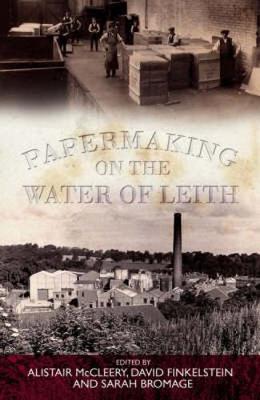Voice in travel copywriting: your complete guide

Why voice matters in travel and tourism copy
If you run a tour company, manage short term rentals, operate a B&B or work anywhere in the travel and tourism industry, you already know how stiff the competition is. There are gazillions of other businesses offering similar experiences, similar accommodation, similar tours.
So how can you stand out from the crowd?
The answer isn’t flashier photos or fancier amenities. It’s something much more powerful and personal. And that something is: your voice.
Just as you have a unique speaking voice, you have your very own writing voice. And it’s what makes people (your people, that is) choose you over everyone else. It’s what builds trust before someone ever meets you. It’s also what turns browsers into bookers and one-time guests into life-long admirers.
This guide will show you exactly how to find, develop, and use your own voice so you can feel much more confident about standing out and connecting with your ideal guest.

What you’ll learn
This is a comprehensive guide to voice in copywriting, and it’s the foundation for a series of detailed posts I’m writing – all specifically for travel and tourism professionals.
Maybe you’re just starting to think about your brand voice? Perhaps you’re ready to refine what you’ve already got. Either way, you’ll find what you need here.
In this guide, we cover:
- What I’m talking about when I talk about voice
- How to identify your own voice
- Why consistency matters across all your customer touchpoints
- The AI trap (and how to avoid it)
- How to develop your voice with professional support
You can read straight through, or jump to the section that’s calling to you right now.
What voice does for your travel business
You’ve heard this before, but it’s worth saying again. People don’t just book holidays. They book experiences. They book feelings. They book connection.
When someone’s choosing between your cottage and another one, between your tour and a competitor’s, they’re not just comparing amenities. They’re asking themselves:
‘Do I trust these people?
Do they seem like my kind of folk?
Will I vibe with them?’
Your voice answers all of these questions before you ever speak a word face-to-face.
Being self-aware when it comes to your voice, and then having the confidence to go ahead and use it (so you don’t just sound like all the other robots bleeping into the void) is huge. It can work wonders for your business, as it:
- builds trust fast
- shows what you’re like and what you believe in
- sets you apart from your competitors
- creates emotional connection
- makes your marketing memorable
- attracts the right guests (and repels the wrong ones)
- turns casual browsers into engaged readers
- gets engaged readers pressing ‘Book now’ and feeling excited about it.
Without a clear voice? Your copy sounds like everyone else’s. Generic. Forgettable. And easily replaced by the next listing down.

What is voice? (and what is idiolect?)
Let’s start by getting clear on what we mean by ‘voice’ when it comes to writing.
Your voice is how you sound when you write. It’s your personality on the page. It’s the sum total of your:
- word choices
- sentence structures
- tone (warm, professional, cheeky, thoughtful)
- rhythm and pacing
- humour (or lack thereof)
- unique phrases and expressions
- values and perspective
But there’s an even more specific term that’s useful here: idiolect.
While a dialect is what’s shared by a group of speakers regionally, your idiolect is uniquely yours. It’s your personal linguistic fingerprint: your vocabulary, your grammar quirks, your funny little expressions that your friends would recognise as being ‘so you’.
You’ve inherited expressions from your parents, maybe even your grandparents. You’ve picked up phrases from your kids, your friends and your colleagues. You use words from your childhood, your region, your experiences. This is your idiolect.
Everyone has one, which is why it’s a crying shame that there are so many identikit voices online.
Everyone sounds the same because they’re not using their idiolect. They’re using corporate-speak, or AI-generated bland-speak, or what they think ‘professional’ writing should sound like.
If you harness your idiolect (meaning that if you write like you actually talk) you’ll put yourself head and shoulders above most other travel and tourism businesses out there.
How to find your voice
Finding your voice isn’t about inventing a persona or trying to sound a certain way. It’s about uncovering what’s already there.
The best way to discover your idiolect is by doing a voice audit—that means taking a systematic look at how you actually communicate when you’re not trying to sound ‘professional’.
This involves:
- Mining your text messages for patterns and phrases
- Recording yourself talking naturally about your business
- Collecting your quirky expressions and regionalisms
- Analyzing the gap between how you talk and how you write
Read: I’ve created a complete, step-by-step voice audit guide with detailed instructions to help you through the process.

Voice consistency: why it matters everywhere
Finding your voice is only half the battle. The other half? Using it consistently across every single customer touchpoint.
Think about all the places your words appear:
- your website (homepage, about page, listings)
- booking confirmations
- welcome messages and pre-arrival emails
- out-of-office replies
- social media posts
- review responses
- house manuals or tour information
- error messages (yes, even your 404 page!)
- text messages to guests
- printed materials
If you sound warm and welcoming on your website but cold and corporate in your booking confirmation, you’re confusing people. If your Instagram is bubbly and casual but your out-of-office reply is as frigid as an Arctic breeze, what are guests supposed to think?
An inconsistent voice is like that friend who blows hot and cold. You never quite know where you stand with them. It erodes trust instead of building it.
Voice consistency isn’t about being the same level of formal everywhere: it’s about being recognisably you everywhere.
Want to find out more about voice consistency?
Read the complete guide on maintaining consistent voice across all your travel business touchpoints – from your website to your out-of-office replies. Includes real examples, common mistakes, and a free brand style guide template.
Read: Voice Consistency for Travel Businesses.
Try this: audit your touchpoints this week. Read everything as if you’re a potential guest meeting you for the first time. Does it all sound like the same person?

The AI trap (and how to avoid it)
Let’s talk about the elephant, or should I say robot, in the room: AI.
First, let me confess. I’m as lazy as the next human. When I found out you could train AI to sound like you, I was intrigued. And of course, I gave it a go.
The verdict? When it comes to voice, AI is dangerous. Here’s why:
AI flattens your voice. It takes all your interesting quirks, your rhythm, your personality, and it smooths them into something instantly forgettable. It makes you sound like all the other folk using AI to pump out their content. Which is exactly what you’re trying to avoid.
Even when you feed it your own writing samples and give it detailed instructions, you still end up with something that sounds metallic. You still have to edit out the corporate buzzwords you’d never use, the weird vague phrases that sound good but mean nothing, and the loss of your natural rhythm.
By the time you’ve edited an AI draft to actually sound like you, you might as well have written it yourself.
So if you must use AI, here’s how:
Write your draft yourself first. Get your ideas down in your own words. Then, if you want, use AI to check grammar or tidy up structure. But give it explicit instructions: ‘Preserve my voice. Keep my casual tone, my short sentences, my unique phrases.’
And then (this is super important) edit it ruthlessly. Read it aloud. If it doesn’t sound like you, put your personality back in. Delete the AI-isms. Add back your quirks.
Your voice is your competitive advantage. Don’t hand it over to a robot.
Working with a Voice Coach

Sometimes you need help drawing your voice out.
Finding your voice can be difficult when you’re stuck inside your own head. You might not recognise what makes you unique because it feels normal to you. Or you might have blocks around sounding “professional enough” that stop you from letting your personality show.
How voice coaching works:
A good voice coach doesn’t tell you what to say or give you a template to follow. Instead, they:
- ask probing questions that get past your rehearsed answers
- listen for the moment your voice change (when you stop being careful and start being yourself)
- show you the patterns in your own speech you can’t see yourself
- build your confidence in using your own voice
The transformation I see:
When clients first come to me, they often write in what they think is a ‘professional’ voice. It’s fine. Perfectly adequate. But it could be anyone.
Then through coaching (through the right questions, through transcribing our conversations, through showing them their own words back to them) they discover their own voice. The one that’s warm, or funny, or quietly thoughtful, or quirky.
And that’s when everything changes. They start getting replies to their emails. More engagement on social media. Real connections with potential guests. And ultimately, more bookings.
Take the Next Step
Voice isn’t something you figure out overnight. It’s a process of discovery, practice, and refinement. But it’s also one of the most powerful tools you have for standing out in the crowded travel industry.
Start here:
Want these posts (and more copywriting tips) in your inbox?
Join Club Campion – my bi-weekly emails for travel and tourism professionals who want to write copy that sounds like them.
Ready for one-to-one support?
If you’re tired of sounding like everyone else and you want personalised help uncovering your own voice, let’s chat. I work specifically with travel professionals to help you find the voice that makes people choose you over everyone else.
Contact me here: genevieve@campioncopy.com
Your voice is already there, waiting to be heard. Let’s make sure your copy is doing it justice.



















